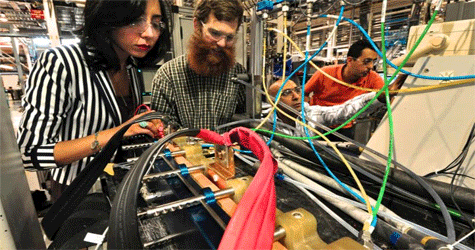Researchers working to improve durability in fuel cell powered buses, including a team from Simon Fraser University, have discovered links between electrode degradation processes and bus membrane durability.
The team is quantifying the effects of electrode degradation stressors in the operating cycle of the bus on the membrane lifetime.
The findings of the study, led by SFU graduate student Natalia MaCauley, are the latest in a long-term study at Burnaby-based Ballard Power Systems and funded by Automotive Partnership Canada that aims to make fuel cell buses competitive with diesel hybrids.
To improve fuel cell module durability and predict longevity, researchers are studying the degradation mechanisms of the fuel cells that occur under real-world transit bus conditions.
Says SFU project lead Erik Kjeang: “Our strong multidisciplinary collaboration between chemistry and mechatronic systems engineering (MSE) is bearing fruit. The fuel cell is a mechatronic device, and the bandwidth of this project allows advances in chemistry to be engineered and implemented into Ballard’s products.”
For more on this article: http://www.sciencedaily.com/releases/2013/05/130522160355.htm









